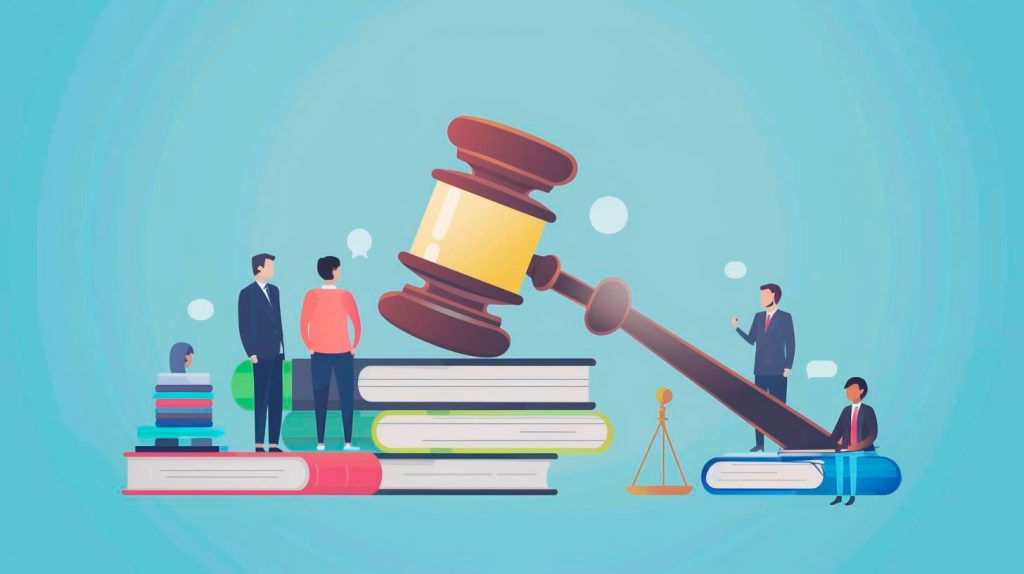
Seeking Financial Compensation and Protecting Your Credit Score Tips for Personal Injury Victims
Here are some tips for personal injury victims to protect their credit score while seeking the compensation they deserve.
1. Understand the Financial Impact of Personal Injury
Before diving into the legal process of seeking compensation for your injuries, it’s important to understand the financial impact it can have on your life. According to the National Safety Council, the average cost of a disabling injury in 2019 was $894,238, including medical expenses and lost wages. These costs can quickly deplete your savings and put you in a precarious financial situation.
2. Seek Legal Help
One of the first steps in seeking financial compensation for a personal injury is to consult with a qualified personal injury lawyer. An experienced attorney can help you navigate the complexities of the legal system, negotiate with insurance companies, and ensure you get the compensation you deserve. According to the American Bar Association, 85% of personal injury cases are settled out of court, and having a lawyer on your side can increase your chances of getting a fair settlement.
3. Keep Track of Expenses
To protect your credit score during a personal injury case, it’s essential to keep track of all your expenses related to the injury. This includes medical bills, property damage, lost wages, and any other costs incurred as a result of the accident. By documenting your expenses, you can provide evidence of the financial impact of the injury and increase your chances of receiving fair compensation.
4. Communicate with Creditors
If you’re unable to pay your bills due to a personal injury, it’s crucial to communicate with your creditors. Let them know about your situation and explore options for deferred payments or reduced interest rates. According to the Consumer Financial Protection Bureau, creditors may be willing to work with you if you’re facing financial hardship due to a personal injury.
5. Be Cautious with Loans and Credit Cards
During a personal injury case, you may be tempted to take out loans or use credit cards to cover your expenses. While this can provide temporary relief, it’s important to be cautious. Taking on additional debt can strain your finances even further and negatively impact your credit score. Before taking out a loan or using a credit card, consider other options for financial assistance, such as payment plans with healthcare providers or assistance from family and friends.
6. Monitor Your Credit Score
Throughout the personal injury claims process, it’s essential to monitor your credit score regularly. By staying informed about any changes to your credit report, you can quickly address any issues that may arise, such as missed payments or increased debt. According to the Federal Trade Commission, you’re entitled to one free credit report from each of the three major credit bureaus every 12 months, so take advantage of this opportunity to stay on top of your credit score.
7. Be Patient and Persistent
Personal injury cases can be lengthy and complicated, but it’s important to be patient and persistent in seeking the compensation you deserve. According to the Bureau of Justice Statistics, the average time from filing a personal injury lawsuit to settlement is 25 months. While it may be a challenging process, perseverance can pay off in the form of financial compensation that can help you recover from your injuries and protect your credit score.
Seeking financial compensation for a personal injury can be a daunting task, but with the right support and strategies, you can protect your credit score and secure the compensation you deserve. By understanding the financial impact of your injuries, seeking legal help, documenting your expenses, communicating with creditors, being cautious with loans and credit cards, monitoring your credit score, and being patient and persistent, you can navigate the legal process with confidence and financial stability.
Strategies for Minimizing the Negative Effects of Personal Injury Claims on Your Credit
If not handled carefully, a personal injury claim can lead to a damaged credit history that can make it difficult to secure loans, credit cards, or even housing in the future. However, there are strategies you can use to minimize the negative effects of personal injury claims on your credit.
Seek Legal Assistance
One of the first steps you should take when dealing with a personal injury claim is to seek legal assistance from a qualified attorney. A personal injury attorney can help you navigate the complexities of the claim process and negotiate with insurance companies on your behalf. By having a skilled legal professional on your side, you can increase the chances of obtaining a fair settlement that covers your medical expenses and lost wages without having to resort to taking out high-interest loans or maxing out credit cards.
Understand Your Insurance Coverage
It is important to thoroughly understand your insurance coverage and what expenses are covered under your policy. Many people make the mistake of assuming that their insurance will cover all medical expenses related to a personal injury claim, only to be surprised when they receive a bill for services that are not included in their policy. By knowing what is covered and what is not, you can avoid unnecessary expenses that can lead to financial strain and negatively impact your credit score.
Keep Track of Your Expenses
It is essential to keep detailed records of all expenses related to your personal injury claim, including medical bills, pharmacy receipts, and mileage for driving to medical appointments. By keeping track of these expenses, you can ensure that you are compensated for all costs incurred as a result of your injury. Failing to document your expenses can result in you having to pay out of pocket for medical treatments, which can quickly add up and put a strain on your finances.
Communicate with Your Creditors
If you are unable to pay your bills on time due to a personal injury claim, it is important to communicate with your creditors and explain your situation. Many creditors are willing to work with individuals who are experiencing financial hardship, especially if they can provide documentation to support their claim. By being proactive and transparent about your financial situation, you may be able to negotiate a payment plan or deferment that can help you avoid late payments and minimize the impact on your credit score.
Monitor Your Credit Report
It is crucial to regularly monitor your credit report to ensure that there are no inaccuracies or fraudulent activity that could be affecting your credit score. If you notice any errors on your report, you should dispute them with the credit bureaus to have them removed. By staying vigilant and taking proactive steps to protect your credit, you can minimize the negative effects of a personal injury claim on your financial health.
Dealing with a personal injury claim can be a stressful and overwhelming experience, especially when it comes to managing your finances. By following these strategies and seeking assistance from a qualified attorney, you can minimize the negative effects of personal injury claims on your credit and ensure that you are able to recover financially from the impact of your injury.
Understanding the Impact of Personal Injury Claims on Your Credit Score
In this blog post, we will discuss how personal injury claims can affect your credit score and what steps you can take to minimize the damage.
The Impact of Personal Injury Claims on Your Credit Score
When you file a personal injury claim, it typically involves negotiating with the at-fault party or their insurance company to reach a settlement. During this process, your medical bills and other expenses related to the injury may go unpaid for an extended period of time. This can result in those bills being sent to collections, which can have a negative impact on your credit score.
Additionally, if you are unable to work due to your injury, you may be facing financial difficulties that make it challenging to keep up with your other financial obligations, such as paying your mortgage or credit card bills. Missing payments on these accounts can also lower your credit score.
Steps to Minimize the Impact on Your Credit Score
While it may be challenging to avoid some negative effects on your credit score when dealing with a personal injury claim, there are steps you can take to minimize the damage:
- Communicate with Your Creditors: If you anticipate that you will have difficulty making payments on your debts due to your injury, it is crucial to communicate with your creditors as soon as possible. Many creditors are willing to work with you and may offer options such as deferred payments or reduced interest rates.
- Keep Documentation: Keep detailed records of all your medical expenses and lost wages related to your injury. This documentation may be necessary to prove the extent of your damages in your personal injury claim, and can also help you track any financial losses that may impact your credit score.
- Consider a Personal Loan: If you are struggling financially due to your injury, you may want to consider taking out a personal loan to cover your expenses while you wait for your settlement. Just be sure to shop around for the best interest rates and terms.
Statistics on Personal Injury Claims and Credit Scores
According to a recent study by the Consumer Financial Protection Bureau, medical debt is the most common type of debt in collections, and it often results from unexpected medical emergencies such as personal injuries. The study also found that individuals with medical debt are more likely to have lower credit scores compared to those without medical debt.
Furthermore, a survey conducted by the National Association of Consumer Advocates found that over 50% of individuals who filed for bankruptcy cited medical expenses as a significant factor in their financial difficulties. This highlights the importance of managing your finances carefully when dealing with a personal injury claim to avoid long-term negative effects on your credit score.
Dealing with a personal injury claim can be a challenging and stressful experience, and the impact on your credit score is something that you should be aware of. By taking proactive steps to communicate with your creditors, keep detailed records of your expenses, and consider alternative financing options, you can minimize the damage to your credit score and focus on your recovery.
Remember, it is always advisable to consult with a qualified personal injury attorney who can guide you through the legal process and help you navigate the financial implications of your claim. With the right support and information, you can protect your credit score while seeking the compensation you deserve for your injuries.
Factors That Can Affect Your Credit Score During a Personal Injury Claim
Medical Bills and Expenses
One of the main factors that can impact your credit score during a personal injury claim is the accumulation of medical bills and expenses. If you are injured in an accident, you may be facing significant medical costs for treatment, rehabilitation, and ongoing care. These expenses can quickly add up and may lead to missed payments or even debt accumulation.
It is crucial to stay on top of your medical bills and expenses to avoid any negative impact on your credit score. If you are struggling to pay your medical bills, speak with your healthcare provider to see if a payment plan can be arranged. Additionally, you may want to consider using insurance coverage or seeking compensation through your personal injury claim to help cover these costs.
Lost Income and Financial Instability
Another factor that can affect your credit score during a personal injury claim is lost income and financial instability. If you are unable to work due to your injuries, you may experience a loss of income and be unable to meet your financial obligations. This can lead to missed payments on loans, credit cards, and other bills, which can negatively impact your credit score.
To help mitigate the impact of lost income during a personal injury claim, consider speaking with your employer about options for disability leave or accommodations. You may also want to explore other sources of income, such as disability insurance or benefits through your personal injury claim. By proactively addressing lost income, you can avoid the financial instability that can harm your credit score.
Lawsuit Settlements and Judgments
One of the final factors that can affect your credit score during a personal injury claim is the outcome of the lawsuit settlement or judgment. If you are awarded a settlement or receive a judgment in your favor, this can impact your credit score in several ways. For example, a large settlement may require you to take out a loan against your settlement, which can increase your debt and impact your credit utilization ratio.
Additionally, if you are unable to pay a settlement or judgment, this can result in a negative mark on your credit report. It is important to work with your attorney to ensure that any settlements or judgments are structured in a way that minimizes their impact on your credit score. By understanding the potential financial implications of a lawsuit settlement or judgment, you can make informed decisions that protect your credit score.
Overall, there are several factors that can affect your credit score during a personal injury claim. From medical bills and expenses to lost income and lawsuit settlements, it is essential to be aware of how these factors can impact your financial health. By taking proactive steps to address these issues, you can protect your credit score and maintain your financial stability during a personal injury claim.
Remember, your credit score plays a significant role in your overall financial health, so it is important to prioritize maintaining a good credit score, especially during challenging times like a personal injury claim. By staying informed and working with professionals such as attorneys and financial advisors, you can navigate the complexities of a personal injury claim while safeguarding your credit score.













Dang, personal injury claims really have more consequences than I thought. Has anyone experienced this firsthand?
I’ve heard that settlements from personal injury claims can be taxed. Is that true, and how does that affect your credit score?
I wonder if there’s a way to recover financially after a personal injury claim affects your credit score. Any tips?
I’m so confused about how personal injury claims tie into credit scores. Can someone break it down for me more clearly?
I heard that some insurance companies might deny coverage if you file a personal injury claim. Is that true?
I’ve been putting off filing a personal injury claim because I’m worried about the potential impact on my credit score. Is it really worth the risk?
Yo, I didn’t even know that personal injury claims could mess up your credit score, that’s wild! Can someone explain how that even happens?
Man, I hope my credit score doesn’t take a hit if I ever have to file a personal injury claim. Is there any way to avoid that?
Honestly, I never thought about how personal injury claims could impact your credit. I need to do more research on this before making any decisions.
I had no idea that personal injury claims could have a long-term effect on your financial health. This is definitely something to consider before pursuing anything like that.